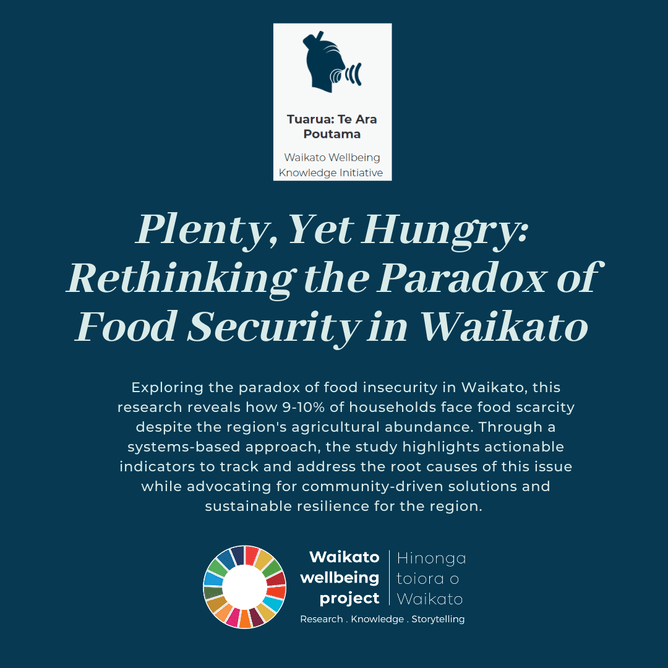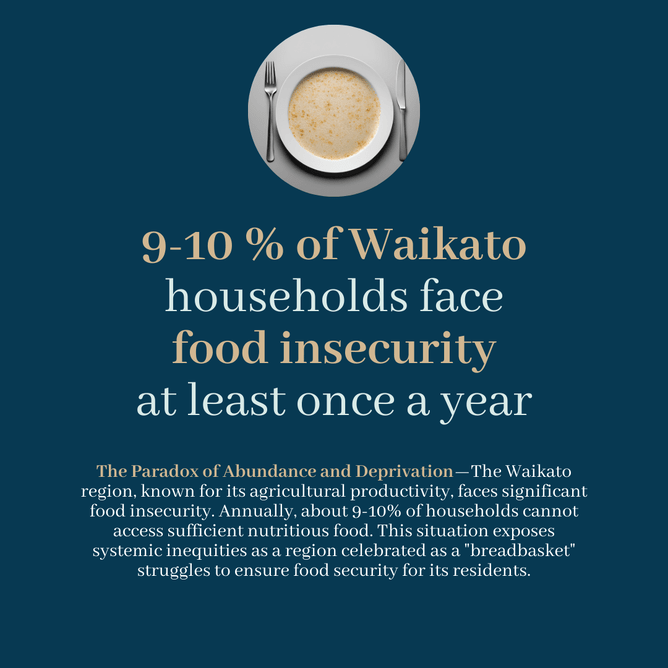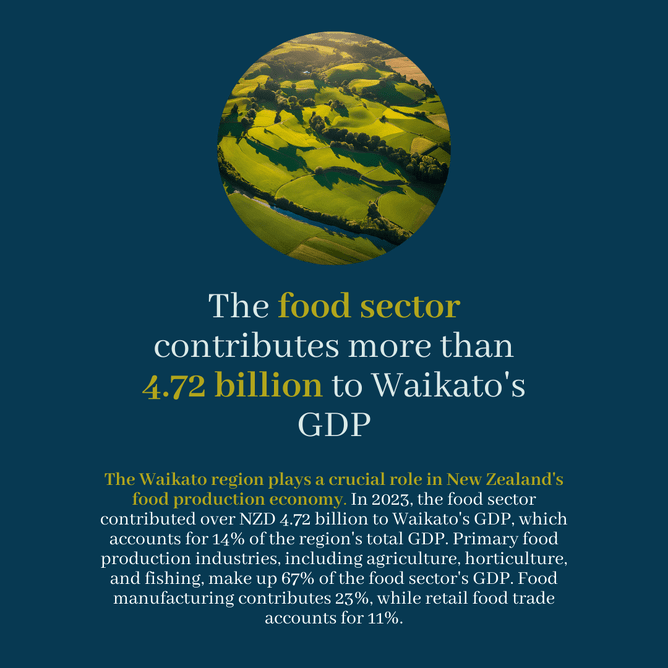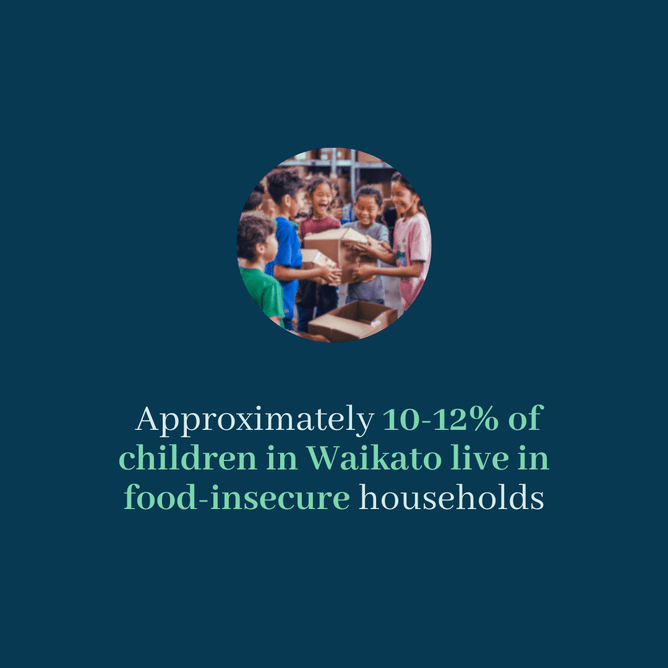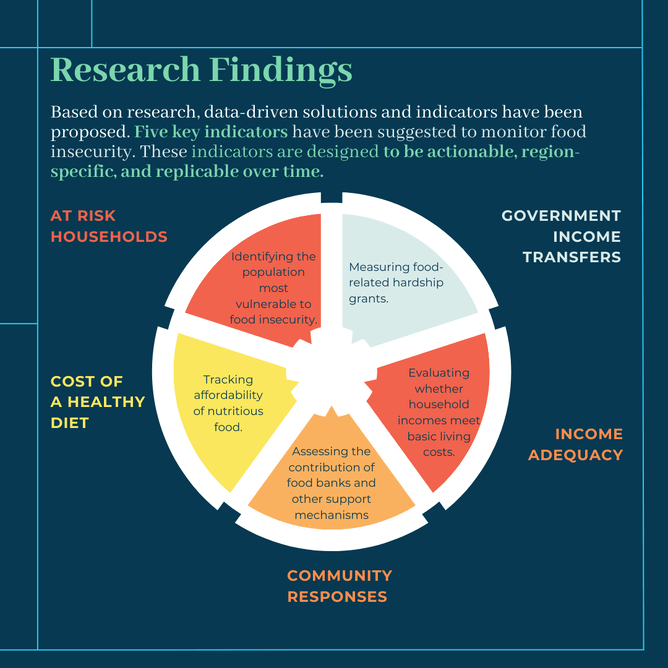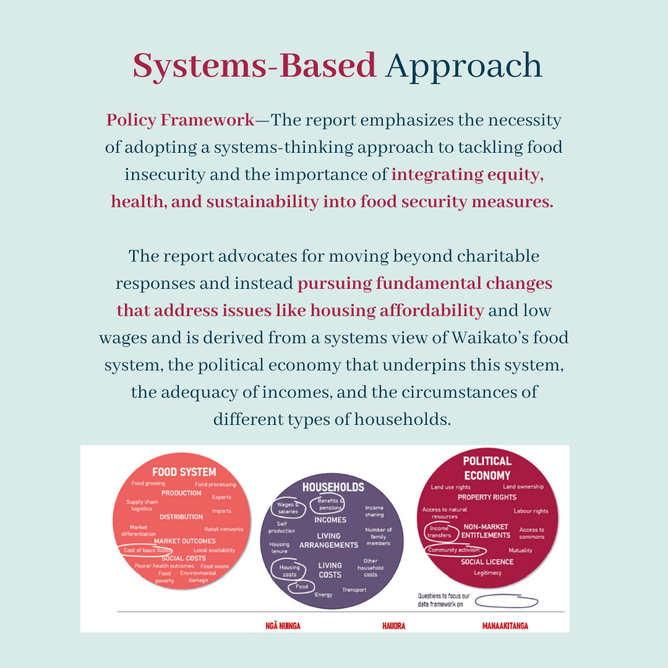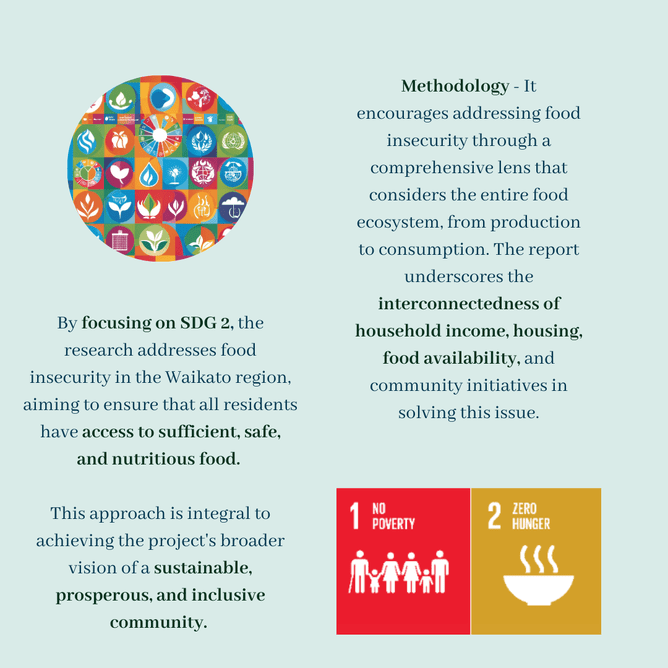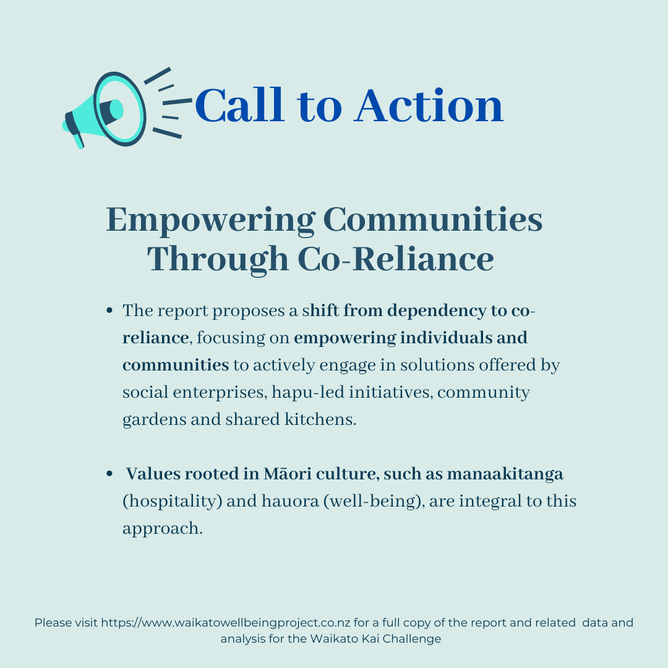The Waikato Wellbeing Project has unveiled the first of three pivotal research reports aimed at tackling food insecurity and poverty in the region. Framing Food Insecurity in the Waikato, conducted by StrategEase, Kelvin Norgrove and Alan Johnson, is part of the Waikato Kai Challenge and Te Ara Poutama Knowledge Initiative.
This foundational report provides crucial insights into the paradox of food insecurity in one of New Zealand’s most agriculturally rich regions. It sets the stage for actionable solutions to hunger and poverty, aligning with Sustainable Development Goals (SDGs) 1 (No Poverty) and 2 (Zero Hunger).
This report is the first in a three-part research programme designed to create a comprehensive, actionable work programme addressing food insecurity in Waikato.
Following Framing Food Insecurity in the Waikato, the next steps include:
A Foodshed Analysis to fully quantify the Waikato food production system and how much food we need to feed everybody with good nutritious food.
Empathy Based Research with funding from the MAS Foundation, offering lived experience insights into the everyday human impact of food insecurity.
Food Insecurity in the Middle of Abundance
Despite Waikato’s reputation as a food production hub and its contribution of over $4.72 billion to New Zealand’s GDP in 2023, approximately 9-10% of households in the region face food insecurity. This paradox highlights systemic inequities, where a region celebrated as a "breadbasket" struggles to provide sufficient, nutritious food for its own people. The report further reveals that 10-12% of children in Waikato live in food-insecure households, exacerbating long-term disparities in health and wellbeing.
“The number of households experiencing food insecurity in the Waikato region is equivalent to the population of Taupō and Ōtorohanga combined. This really demonstrates the scale of the issue and how many of our families are impacted” said Kelvin Norgrove.
The report identifies 5 major themes, which both summarise the state of the Waikato kai system, and where change is needed:
1. The Waikato food system has major imbalances, dominated by large-scale production/processing and a corporate retail duopoly.
2. Unfortunately, systemic change is unlikely anytime soon, highlighting the importance of public policy interventions, philanthropy, charity & community activism.
3. The spectacle of want amongst plenty in our region challenges the food system’s social licence. In particular food waste within processing and retail is a major embarrassment which corporates attempt to address through measures such as food rescue.
4. Community based activism is a feasible lever for beneficial change; and
5. Appropriate data and insight assist us to re-shape the narrative around the food system.
According to co-author Alan Johnson, “Right now very few of us really have choice when it comes to food. There’s an urgent need to change the Waikato food narrative from one of dependence, on both the industrial food system and food charity, towards a model built on co-reliance, where households and people have greater agency over how their food is produced, processed, procured and prepared”
Data-Driven Indicators for Monitoring Progress
To enable long-term, actionable progress, the report introduces five region-specific indicators to track food insecurity and measure the impact of initiatives. These indicators are replicable and provide a roadmap for data-driven solutions:
1. The cost of a healthy diet- a survey-based indicator of the weekly price a household will need to pay for a preferred shopping basket which will provide it with a healthy diet.
2. Government Support- The number and value of food related income transfers from Government.
3. Food Charity - The number and value of community-based responses to food insecurity.
4. Income adequacy- recognising the pernicious effect that other household essentials (rent, clothing, power, transport etc) have on the ability to purchase good food; and
5. At risk households- the numbers and types of Waikato households likely to be at risk of food insecurity in any one year and the numbers of children likely to be part of these households.
Systems-Based Solutions
The report emphasises that addressing food insecurity requires moving beyond charitable responses. Instead, it advocates for systemic changes targeting the root causes of food insecurity, including:
Housing affordability
Low income
Inequities in income distribution
A systems-thinking approach is proposed, encompassing the entire food ecosystem from production to consumption, while integrating equity, health, and sustainability into food security measures.
Policy Recommendations: A Holistic Framework
The report calls for policies that align with SDGs 1 and 2, integrating interconnected factors such as household income, food availability, housing stability, and community-driven initiatives. Values rooted in Māori culture, including manaakitanga and Hauora, are central to these recommendations.
A Call to Action: Empowering Communities Through Co-Reliance
The report champions a shift from dependency to co-reliance by empowering individuals and communities to engage in collaborative solutions. Proposed strategies include:
Expanding social enterprises and hapū-led initiatives
Supporting community gardens and shared kitchens
Prioritising community-driven resilience over one-off aid
“Addressing food insecurity in Waikato is not just about food,” said Harvey Brookes, Executive Director of the Waikato Wellbeing Project. “It’s about tackling the structural issues that perpetuate food insecurity and poor health outcomes, including the pernicious effect of high housing costs. This report provides a roadmap for creating a more sustainable and inclusive future, one where everyone in our region has access to the food they need to thrive.”
Together, these research initiatives will generate a robust knowledge base to inform collaborative solutions, to be delivered in partnership with Go Eco, a key community wellbeing organisation in the Waikato. GoEco CE Jo Wrigley says the partnership is a great opportunity to build on the knowledge base the WWP is building and translate that into actions that make a difference.
“We're thrilled to have formalised partnership with the wellbeing project to keep the momentum going towards our shared wellbeing goals in the Waikato, especially around kai”, said Jo Wrigley. “This work creates a foundation of better knowledge for us all and starts to change the narrative towards kai Motuhake- where we all have far greater autonomy and authority over our food.”
Download the full report below

